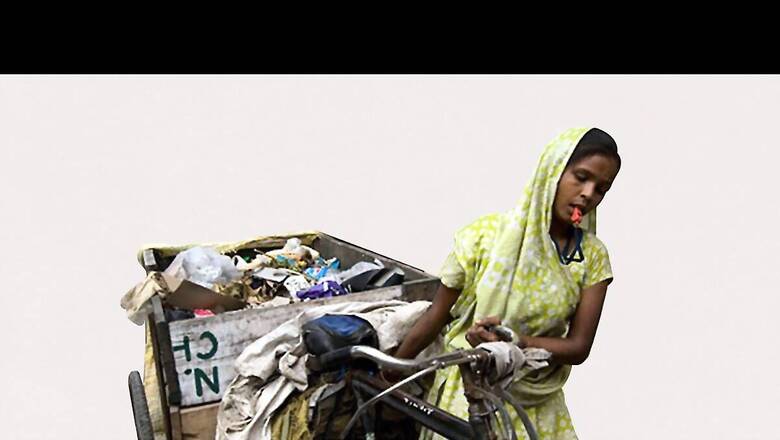
views
History is full of examples where one small change sets off ripples to larger change. Rosa Parks and Mahatma Gandhi refused to give up their seats to white men. Indians marched to Dandi to make their own salt. The protests in Tiananmen Square advanced the cause of human rights, just as Tarana Burke did for women with the #MeToo movement.
These are inflection points; and the world pivots around them. In much the same way, there has been a seismic shift in global perspective, recognizing the pivotal role of proper sanitation practices in achieving several of the United Nations Sustainable Development Goals (SDGs). SDG 6, which aims to ensure access to water and sanitation for all, has functioned as a catalyst for transformative change worldwide, but nowhere as strongly as India.
The Swachh Bharat Mission, launched in 2014, has redefined the importance of toilets and access to clean water for millions. In the span of just five years, this mission led to the construction of an astounding 10.9 crore toilets, while the Jal Jeevan Mission connected nearly 11 crore households to running water supply. Beyond SDG 6, these efforts ripple out to the fulfilment of several other SDGs, generating a cascade of positive effects:
SDG 3 (Ensure healthy lives and promote well-being for all): By preventing diseases like diarrhoea, cholera, and other vector-borne diseases, sustainable sanitation helps safeguard public health.
SDG 4 (Ensure inclusive and equitable quality education) and SDG 5 (Achieve gender equality and empower all women and girls): Safe, private, and clean toilets in schools help in two key ways: one, they reduce absenteeism due to preventable diarrhoeal and other diseases that are linked to toilet hygiene. Two, girls don’t drop out when they have access to safe and clean toilets, particularly when they begin menstruation.
SDG 11 (Make cities and human settlements inclusive, safe, resilient and sustainable): Access to clean toilets directly impacts how clean and resilient our built environments are.
SDG 13 (Take urgent action to combat climate change and its impacts): Sustainable sanitation practices reduce environmental impacts, conserve water, and manage waste more efficiently.
SDG 14 (Conserve and sustainably use the oceans, seas, and marine resources for sustainable development) and SDG 15 (Protect, restore, and promote sustainable use of terrestrial ecosystems): Ensuring that toilets don’t harm ecosystems and water sources helps protect biodiversity and promote sustainable land and water use.
Women Sanitation Workers: Driving Change
In this transformative journey towards sustainable sanitation, women sanitation workers are emerging as the unsung heroes, driving change in their communities.
They play several roles, from cleaning streets and toilets to maintaining sewage systems and managing waste, to educating users who may not be accustomed to toilets.
Community Outreach: Women sanitation workers are often deeply embedded in their communities, making them effective agents of change. Especially in rural areas, they help educate their communities about the importance of proper sanitation practices and advocate for behavioural change. Particularly for women who are unused to toilets, it is easier for them to approach their local woman sanitation workers with questions about toilet hygiene and menstrual hygiene.
Health Advocates: Trained sanitation workers understand the hazards and risks of their jobs. These women are able to communicate to their employers why masks, gloves and other protective equipment is important for them to do their jobs effectively, and also reach out to their peers and encourage them to take steps to better protect their health.
For the larger community, by keeping communal toilets clean, sanitation workers lower the incidence of disease for all users of these toilets. Moreover, they also help prevent outbreaks of vector borne diseases, by eliminating breeding grounds for these vectors through their sanitation practices.
Environmental Stewards: Human waste contains several pathogens that can cause serious harm to our land and water ecosystems. These women are on the frontline of environmental protection by ensuring that waste is collected and disposed of properly, preventing pollution and environmental degradation.
Training and Support as a Catalyst for Change
When it comes to empowerment for sanitation workers themselves, education and training is an absolute game changer. As India’s leading brand in the lavatory care segment, Harpic has a deep and nuanced understanding of the challenges that women sanitation workers face, and the opportunities that open to them when they have a little training under their belt. It channelled this understanding into the creation of Harpic World Toilet College (HWTC) in 2016.
HWTC was established with the stated objective of improving the quality of life of sanitation workers through their rehabilitation by linking them with dignified livelihood options. Workers trained by the college are provided placement with various organisations. Following the successful proof of concept in Rishikesh, HWTCs have opened in Maharashtra, Aurangabad, in partnership with Harpic, Jagran Pehel and Maharashtra Government.
Women who graduate from HWTC emerge with newfound confidence – their perception about the work they do shifts, when they realise how important their role is to community health, and to the environment. Their training also equips them beyond technical skills needed for their core job, and helps them advance their careers and their finances.
As the HWTC also undertakes placements, most graduates emerge with jobs in the organised sector – with better pay, a provident fund, and insurance. They now have job security, and that security gives them a firmer footing in the world. Between better pay and insurance, they have the confidence to both save for a rainy day, and spend on the things they need to improve their circumstances.
Harpic wanted to also spark a larger conversation and bring attention to these extraordinary women and their struggles. To accomplish this, Harpic joined hands with News18 in Mission Swachhta aur Paani, a movement that champions the cause of inclusive sanitation, equality for all genders, abilities, castes and classes and the strong belief that clean toilets are a shared responsibility.
For 3 years now, Mission Swachhta aur Paani has brought together the right stakeholders on a common platform, so that issues of importance can be discussed, and solutions found. There are many ways all of us can help create a more fair and just system of employment for these people.
After all, these are the women who keep our cities clean, healthy and livable. It’s time for us to return the favour. Join us here, to play your part.




















Comments
0 comment